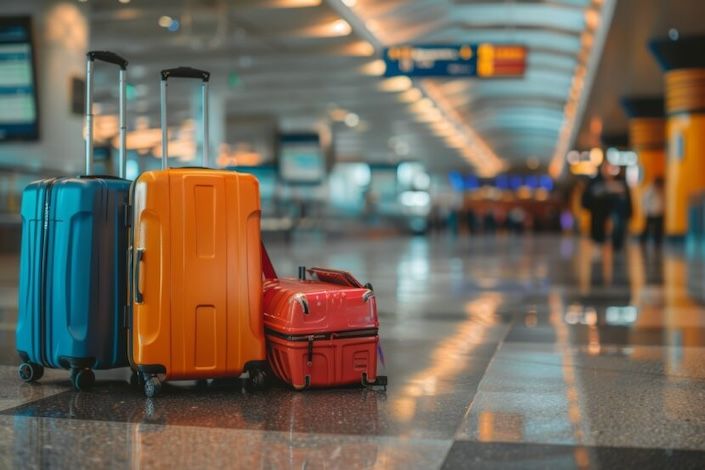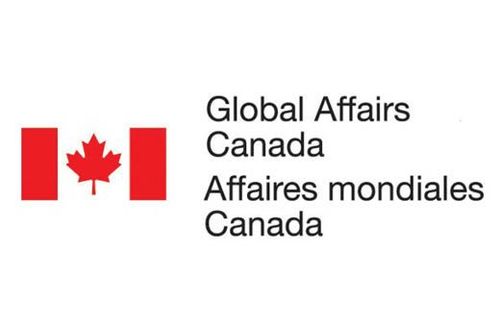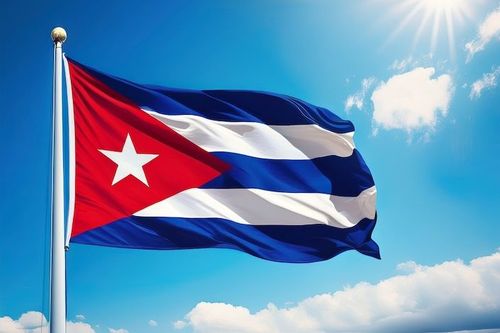Where travel agents earn, learn and save!
News / Global Affairs Canada’s checklist for all those first-time travellers fuelling global tourism growth
These first-time traveller segments include students and other young people travelling outside of Canada for the first time

As travel’s popularity reaches new heights and tourism soars, first-time travellers will be a key market for sustaining future growth, both for GDPs and the travel industry.
While return travellers are a revenue engine for travel agencies, new clients – truly new, and new to travel abroad – are an important part of the client mix as well. Global travel spend is set to top US$2.1 trillion in 2025, according to the WTTC, and many of those adventurers will be setting out for the very first time.
Outbound from Canada, these first-time traveller segments include students and other young people travelling outside of Canada for the first time, new professionals just entering the workforce and on their first international business trip, and even experienced travellers who may be making their inaugural solo trip abroad, embracing the solo travel trend later in life.
As part of Travelweek’s ongoing series of helpful tips and checklists from Global Affairs Canada, here’s a rundown of what first-time travellers need to know before leaving Canada’s borders.
Key advice? “Remember the 3 Rs: Read up, Register with us and Reach us,” says Global Affairs Canada.
The government suggests first-time travellers make its travel advice and advisories an essential part of their trip-planning process. This information includes everything from …
- Entry and exit requirements, including whether travellers need a visa or electronic travel authorization (ETA)
- Potential safety risks and scams
- Laws and customs that could impact the travel experience
- Vaccinations or medications that may be required or recommended
- Weather trends that could affect packing lists and travel plans
Here’s one many first-time travellers many not have thought of: International Driving Permits. “If you plan on renting anything, from a scooter to a car, check to see whether your destination requires that you have an International Driving Permit or whether they will accept your Canadian driver’s license,” says Global Affairs Canada.
Also, clients shouldn’t forget to look into whether their destination is credit-card friendly, cash-dependent or a mix depending on the vendor or service. “Take note of currency conversion rates, automated teller machine (ATM) fees and bank charges for a currency exchange to avoid surprises. Be aware of potential money-exchange scams and card skimmers.”
And of course, there’s always the matter of electronics, chargers and adapters. “You should also find out what kind of adapters you will need for your electronics and whether a voltage converter will be necessary where you are going. Bring power banks for charging on the go and avoid bringing larger electronics if possible.”
Basic information for any experienced travel advisor, but still worth a mention when it comes to new travellers, is the need for the right paperwork, electronic or otherwise. “Consider what travel documents you will need for your trip. If you haven’t yet travelled internationally and need a passport, make sure you submit your application early enough that it will be processed and delivered to you in time for your trip. Remember to allow time for getting visas, if needed,” says Global Affairs Canada. “If you already have a passport, check your destination’s passport validity requirements to make sure it doesn’t expire during that period.”
Global Affairs Canada’s advice for booking air travel could have come with an extra helpful tip: book with a travel advisor. “When booking air travel, remember to give yourself plenty of time before your flight and during any layovers so that you have time to go through security screening and any immigration checkpoints, and to find your departure gates. Research carry-on and checked baggage regulations for your airline(s) as well as limits for liquids, aerosols and gels because going over the limit may result in having to leave products behind at the airport or paying for an extra bag.”
The government also has a tip that’s music to the ears of any travel agent invested in selling travel insurance: “It is also essential that you get comprehensive travel insurance for the length of your trip and that you understand what it does, and does not, cover. If you like activities such as scuba diving, biking and surfing, or even riskier sports such as mountain climbing or skydiving, make sure your insurance covers adventure tourism and includes helicopter rescue and medical evacuation.”
Stay Connected
Global Affairs Canada also reminds first-time travellers to register through the Registration of Canadians Abroad service before leaving Canada. “This way, you’ll get important updates from the Government of Canada if something serious happens in your destination country – such as a natural disaster or a large protest – or if something happens back home. Plus, you’ll get alerts about any changes to the official travel advice so that you can make safer decisions while travelling. It is also important to stay in regular contact with your loved ones back home so that they know you are safe. Leave behind a detailed itinerary and make sure you update them if anything changes.”
The Canadian government also wants first-time travellers to stay safe while online abroad. “Before using free public WiFi, make sure you understand the associated cyber security risks. Research whether you can and should use a virtual private network (VPN) for secure Internet access and take other measures to protect your information. You may want to consider getting an eSIM (an electronic, rather than a physical, SIM card for your mobile device) with data or adding roaming to your Canadian data plan as an alternative.”
It also advises travellers to find the Canadian office nearest to their destination(s) and save the contact information somewhere easily accessible. “Knowing how to reach us can be crucial if you need assistance while abroad. For emergency assistance while outside of Canada, you can contact the Emergency Watch and Response Centre, which is in Ottawa and available 24/7.”
For more detailed information and resources, visit Travel.gc.ca.
Source: Travelweek











